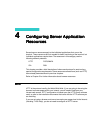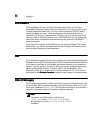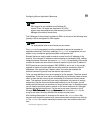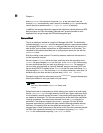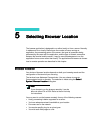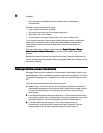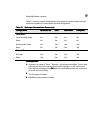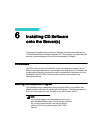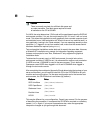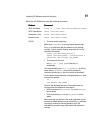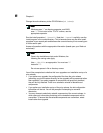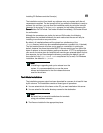
36
3636
36
Chapter 5
• Your company has standardized on a browser other than Netscape
Communicator.
Reasons to execute the browser locally:
• Less network bandwidth is available.
• You require faster start-up of the browser application.
• Many users are on the network.
• Your terminal is connected to the network via a serial or phone line.
If you choose to execute Communicator locally, there are several configuration
options you may choose, each of which will enable different components of
Communicator. Refer to the help available from within Communicator for
instructions.
The user should also configure network services (
Select | System | Setup |
Select | System | Setup | Select | System | Setup |
Select | System | Setup |
Administration | Network Services
Administration | Network ServicesAdministration | Network Services
Administration | Network Services
) for optimum performance of the local
browser.
Because the network terminal has limited local memory, there are constraints on
the use of Netscape Communicator. See the paragraph below for a summary of the
constraints imposed.
Netscape Communicator Constraints
Netscape Communicator ConstraintsNetscape Communicator Constraints
Netscape Communicator Constraints
Netscape Communicator is made up of the composer, the navigator, and the mail/
news subsystem. There is additional support for Java and Java applets. The follow-
ing applies to Netscape 4.61, released in July 1999, running on the network termi-
nal.
There are three boot models for the network terminal:
1.
1.1.
1.
Network boot - in this environment, all the software is stored on a server and
downloaded as necessary to the terminal client. Under this boot model, there is
no issue with the Netscape Communicator on the terminal since nothing is
stored locally.
2.
2.2.
2.
Local Boot with network-based user directories - in this environment the user's
home directory (other than root and guest) is stored on the network server. See
the following table for constraints imposed to protect the flash memory.
3.
3.3.
3.
Local Boot with local user accounts - this is the most precarious of
environments. Anything saved is written to the flash file system. See the
following table for constraints imposed to protect the flash memory.




